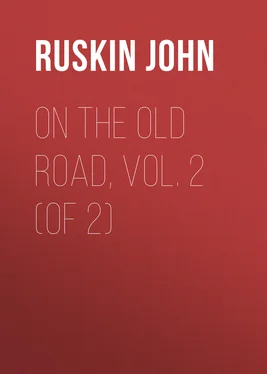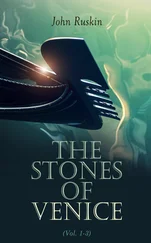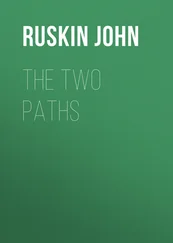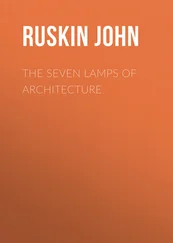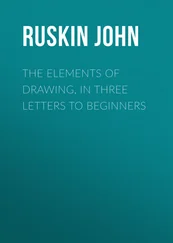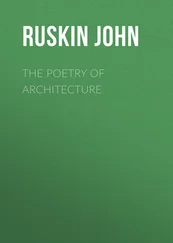John Ruskin - On the Old Road, Vol. 2 (of 2)
Здесь есть возможность читать онлайн «John Ruskin - On the Old Road, Vol. 2 (of 2)» — ознакомительный отрывок электронной книги совершенно бесплатно, а после прочтения отрывка купить полную версию. В некоторых случаях можно слушать аудио, скачать через торрент в формате fb2 и присутствует краткое содержание. Жанр: foreign_antique, foreign_home, literature_19, visual_arts, на английском языке. Описание произведения, (предисловие) а так же отзывы посетителей доступны на портале библиотеки ЛибКат.
- Название:On the Old Road, Vol. 2 (of 2)
- Автор:
- Жанр:
- Год:неизвестен
- ISBN:нет данных
- Рейтинг книги:3 / 5. Голосов: 1
-
Избранное:Добавить в избранное
- Отзывы:
-
Ваша оценка:
- 60
- 1
- 2
- 3
- 4
- 5
On the Old Road, Vol. 2 (of 2): краткое содержание, описание и аннотация
Предлагаем к чтению аннотацию, описание, краткое содержание или предисловие (зависит от того, что написал сам автор книги «On the Old Road, Vol. 2 (of 2)»). Если вы не нашли необходимую информацию о книге — напишите в комментариях, мы постараемся отыскать её.
On the Old Road, Vol. 2 (of 2) — читать онлайн ознакомительный отрывок
Ниже представлен текст книги, разбитый по страницам. Система сохранения места последней прочитанной страницы, позволяет с удобством читать онлайн бесплатно книгу «On the Old Road, Vol. 2 (of 2)», без необходимости каждый раз заново искать на чём Вы остановились. Поставьте закладку, и сможете в любой момент перейти на страницу, на которой закончили чтение.
Интервал:
Закладка:
And you have seen in many foreign countries that far more interest is taken in the improvement of the people in this matter than is taken in this country?—Far more.
Do you think that you can trace the good effects which result from that mode of treatment?—The circumstances are so different that I do not feel able to give evidence of any definite effect from such efforts; only, it stands to reason, that it must be so. There are so many circumstances at present against us, in England, that we must not be sanguine as to too speedy an effect. I believe that one great reason of the superiority of foreign countries in manufactures is, that they have more beautiful things about them continually, and it is not possible for a man who is educated in the streets of our manufacturing towns ever to attain that refinement of eye or sense; he cannot do it; and he is accustomed in his home to endure that which not the less blunts his senses.
The Committee has been informed that with regard to some of our museums, particularly the British Museum, they are very much overcharged with objects, and I apprehend that the same remark would be true as to some of our picture galleries. Are you of opinion that it would be conducive to the general elevation of the people in this country if our works of art, and objects of interest, were circulated more expeditiously, and more conveniently, than at present, throughout the various manufacturing districts?—I think that all precious works of art ought to be treated with a quite different view, and that they ought to be kept together where men whose work is chiefly concerned with art, and where the artistically higher classes can take full advantage of them. They ought, therefore, to be all together, as in the Louvre at Paris, and as in the Uffizii at Florence, everything being illustrative of other things, but kept separate from the collections intended for the working classes, which may be as valuable as you choose, but they should be usable, and above all things so situated that the working classes could get at them easily, without keepers to watch what they are about, and have their wives and children with them, and be able to get at them freely, so that they might look at a thing as their own, not merely as the nation's, but as a gift from the nation to them as the working class.
You would cultivate a taste at the impressionable age?—Especially in the education of children, that being just the first question, I suppose, which lies at the root of all you can do for the workman.
148. With regard to the circulation of pictures and such loans of pictures as have heretofore been made in Manchester and elsewhere, are you of opinion that, in certain cases, during a part of the year, some of our best pictures might be lent for particular periods, to particular towns, to be restored in the same condition, so as to give those towns an opportunity of forming an opinion upon them, which otherwise they would not have?—I would rather keep them all in the metropolis, and move them as little as possible when valuable.
Mr. Slaney. That would not apply to loans by independent gentlemen who were willing to lend their pictures?—I should be very glad if it were possible to lend pictures, and send them about. I think it is one of the greatest movements in the nation, showing the increasing kindness of the upper classes towards the lower, that that has been done; but I think nothing can justify the risking of noble pictures by railway, for instance; that, of course, is an artist's view of the matter; but I do not see that the advantage to be gained would at all correspond with the danger of loss which is involved.
149. Mr. Hanbury. You mentioned that you thought it was very desirable that there should be lectures given to the working classes?—Yes.
Do you think that the duplicate specimens at the British Museum could be made available for lectures on natural history, if a part of that institution could be arranged for the purpose?—I should think so; but it is a question that I have no right to have an opinion upon. Only the officers of the institution can say what number of their duplicate specimens they could spare.
I put the question to you because I have observed in the British Museum that the people took a great interest in the natural history department, and, upon one occasion, a friend of mine stopped, and explained some of the objects, and at once a very numerous crowd was attracted round him, and the officials had to interfere, and told him to move on.—So much more depends upon the explanation than on the thing explained, that I believe, with very simple collections of very small value, but well chosen, and exhibited by a thoroughly intelligent lecturer, you might interest the lower classes, and teach them to any extent.
Would it be difficult to find such lecturers as you speak of?—Not in time; perhaps at present it would be, because we have got so much in the habit of thinking that science consists in language, and in fine words, and not in ascertaining the nature of the thing. The workman cannot be deceived by fine words; he always wants to know something about the thing, and its properties. Many of our lecturers would, I have no doubt, be puzzled if they were asked to explain the habits of a common bird.
150. Is there an increasing desire for information and improvement among the working classes?—A thirsty desire for it in every direction, increasing day by day, and likely to increase; it would grow by what it feeds upon.
To what do you attribute this improvement?—Partly to the healthy and proper efforts which have been made to elevate the working classes; partly, I am sorry to say, to an ambitious desire throughout the nation always to get on to a point which it has not yet reached, and which makes one man struggle with another in every way. I think that the idea that knowledge is power is at the root of the movement among the working classes, much more so than in any other.
Do you consider that the distance of our public institutions is a great hindrance to the working classes?—Very great indeed.
You would, therefore, probably consider it a boon if another institution such as the British Museum could be established in the eastern end of the metropolis?—I should be most thankful to see it, especially there.
151. Mr. Slaney. I think you stated that you considered, that for the working classes it is a great thing to have relaxation of mind after the close occupation of the day; that they would embrace an opportunity of attending popular lectures on branches of natural history which they could comprehend, if they were given to them in plain and simple language?—Yes.
For instance, if you were to give a popular lecture upon British birds, giving them an explanation of the habits of the various birds, assisted by tolerably good plates, or figures describing the different habits of migration of those that come to us in spring, remain during the summer, and depart in the autumn to distant countries; of those which come in the autumn, remain during the winter, and then leave us; of those which charm us with their song, and benefit us in various ways; do you think that such a lecture would be acceptable to the working classes?—It would be just what they would enjoy the most, and what would do them the most good.
Do you not think that such lectures might be given without any very great cost, by finding persons who would endeavor to make the subjects plain and pleasant, not requiring a very expensive apparatus, either of figures or of birds, but which might be pointed out to them, and explained to them from time to time?—No; I think that no such lectures would be of use, unless a permanent means of quiet study were given to the men between times. As far as I know, lectures are always entirely useless, except as a matter of amusement, unless some opportunity be afforded of accurate intermediate study, and although I should deprecate the idea, on the one side, of giving the chefs-d'œuvre of the highest masters to the workman for his daily experiments, so I should deprecate, on the other, the idea of any economy if I saw a definite plan of helping a man in his own times of quiet study.
Читать дальшеИнтервал:
Закладка:
Похожие книги на «On the Old Road, Vol. 2 (of 2)»
Представляем Вашему вниманию похожие книги на «On the Old Road, Vol. 2 (of 2)» списком для выбора. Мы отобрали схожую по названию и смыслу литературу в надежде предоставить читателям больше вариантов отыскать новые, интересные, ещё непрочитанные произведения.
Обсуждение, отзывы о книге «On the Old Road, Vol. 2 (of 2)» и просто собственные мнения читателей. Оставьте ваши комментарии, напишите, что Вы думаете о произведении, его смысле или главных героях. Укажите что конкретно понравилось, а что нет, и почему Вы так считаете.
